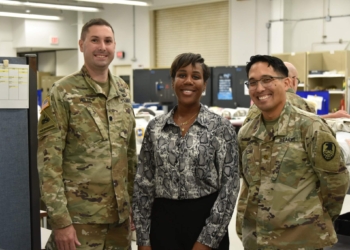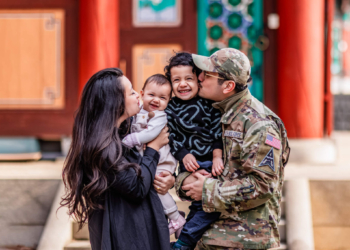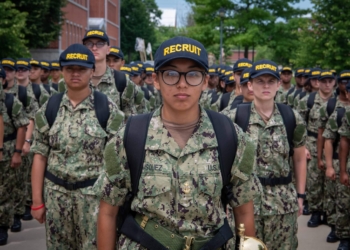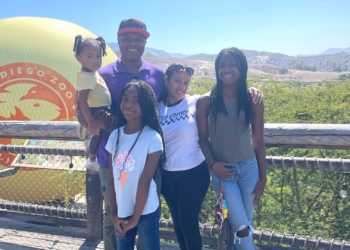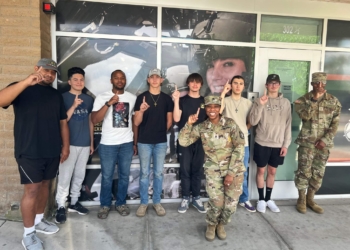Hector Perez, along with his wife, Kate, and friend Joe Castro, started the non-profit organization Merivis in order to provide veterans job training skills that translate beyond their military skills into real-world job opportunities.
They do this by offering a five-week program that provides training in cloud computing, which gives companies the ability to manage and track all of their customer interactions so that a business can focus on regular day-to-day operations instead of IT management of hardware.
But Merivis wasn’t born overnight. Perez, an Air Force veteran and IT professional, was working at Salesforce, a cloud computing company. It was there that he saw a talent gap in the Salesforce community and decided that he was in the perfect position to act as a bridge between veterans and jobs in this market.
“I don’t know what it’s going to look like, but I want to connect these two,” Perez said of the moment he decided he wanted to create Merivis.
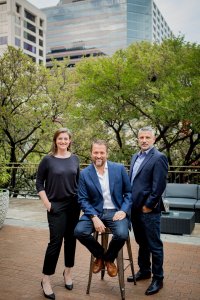
The non-profit started off slowly, only offering a few cohorts per year. They had one five-week cohort in 2015, one in 2016, and two in 2017. The beginnings didn’t go unnoticed though.
Salesforce itself saw the potential for something greater and approached Merivis with a question: “What do you need to do to have more than two cohorts a year?”
Read: MVPvets launches new academy to help veterans in biotech career fields
It was then that Merivis was offered a grant from Salesforce, and Perez and his team realized that they needed to quit their day jobs in order to grow the non-profit.
“We need[ed] to staff this full time,” Perez said.
Between the three founders, the division of labor was laid out for optimal success. Perez had the Salesforce and military background, his wife had nonprofit management experience, and Castro had the technical chops. Since 2015, they have trained more than 480 veterans and have grown to 19 cohorts in 2020.
What the Merivis program is like
Serving up to 18 students for each cohort, four of the five weeks take place online, but students are always supported.
“A big part of what we do is create a community,” said Perez. “A group going through the program together.”
The final week includes five-day in-house training in Austin, Texas; San Antonio, Texas; or Seattle. Unfortunately, COVID has forced the in-person onto Zoom, but the encouragement and camaraderie are still apparent.
Of course, the hierarchy has its place, too, and each student gets a coach.
“My coach told me, ‘Let me know how much or little you want me involved,’” said former Marine Johanna Ciezczak, who served seven years in the military police and enrolled in the Merivis program.
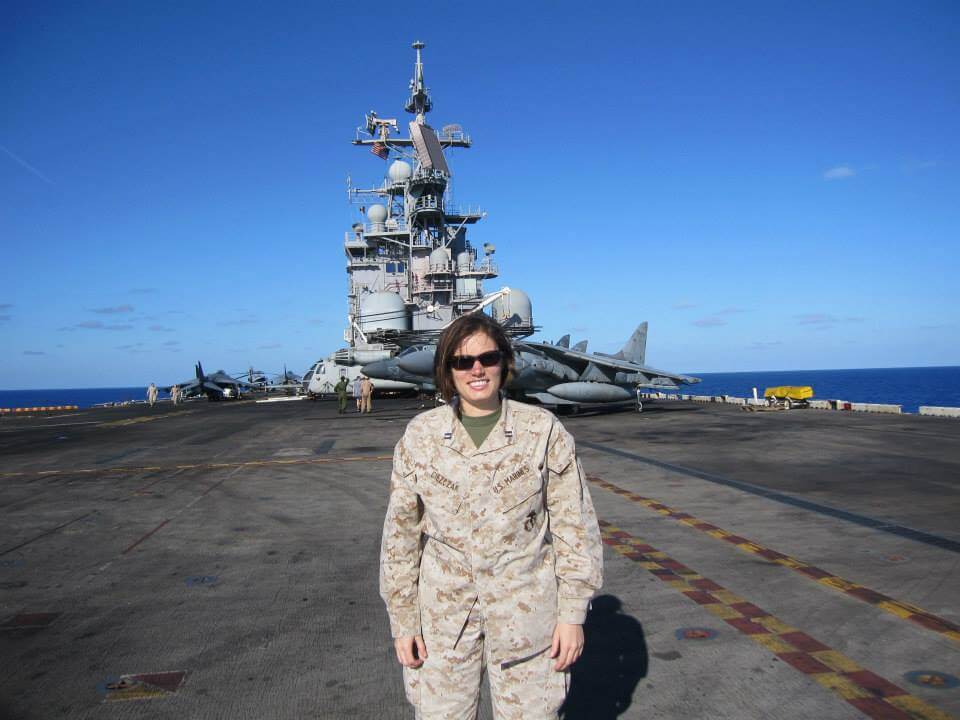
Ciezczak and her coach spoke on the phone once a week and he was available whenever questions arose. For Ciezczak, Merivis was a career opportunity that went beyond the law enforcement option that many veterans choose. She is now a Salesforce Business Systems Analyst for Yelp.
Technical acumen aside, her duties don’t stray so far from those in her past.
“I get to leverage a lot of my project management skills that I learned in the military,” Ciezczak asserted.
The flexible and remote nature of the job opportunities after graduates complete the program can also be critical for military spouses, some of whom have also completed the program. Gaspar Santos, whose wife was an Arabic translator for the Air Force, is one of those spouses.
“You have to start from ground zero every time you move,” Santos said.
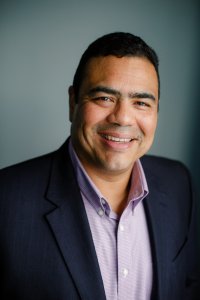
Instead, Santas has now progressed through three levels of training and currently works as a Salesforce Program Manager for Accenture Federal Services in San Antonio.
The career paths for Merivis graduates generally start with administrative work but can grow into positions such as developer, architect, business analyst, and consultant. Merivis also instructs on interviewing, resume writing, and salary negotiation and shores up applicants’ LinkedIn presence.
Merivis continues to support the graduates long after they have completed the program, which speaks to the military background that they are familiar with. There are monthly mixers, online forums, and networking events. To date, 100 Merivis alumni have enlisted as mentors, fundraisers, and volunteers. Santos appreciates the ongoing connection.
“I call them a family,” Santos said. “Everyone is willing to help each other out and celebrate each other’s successes.”
The class roster grows in kind.
“Mostly through word of mouth,” said Perez, “we have a lot of people who find us through the Salesforce military community.”
Entry begins with a click of the online application, and the actual expense isn’t much more involved. A cost of $150 covers each cohort and falls way short of the $10,000 that Salesforce training can cost.
On the other hand, Santos can’t put a price tag on what the program has meant to him.
“The impact to myself, I can’t put into words,” he concluded.

















